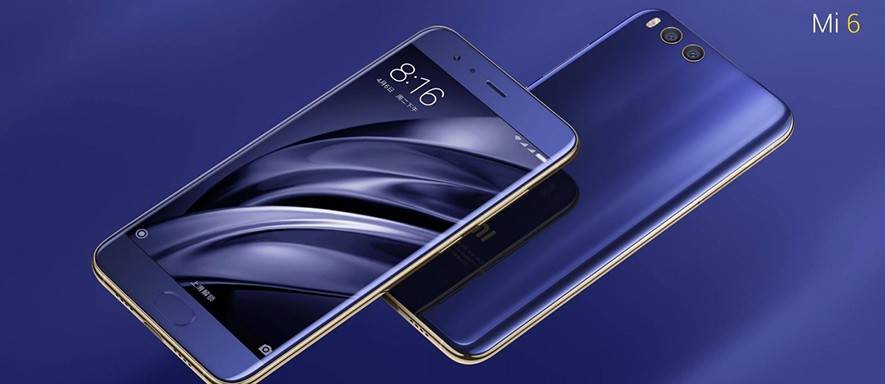Chinese smartphone maker Xiaomi has unveiled its newest flagship smartphone – and the organization is confident the device can have a positive impact in the saturated smartphone industry. Xiaomi CEO conceded that the company had suffered a significant sales slump last year, and that it was going through somewhat of a ‘transitional period’.
However, that pessimism has been replaced with optimism with the launch of the ‘Mi 6’ smartphone. Management at Xiaomi believe the new device can serve as a catalyst that will see them make up for lost ground on rivals, after a disappointing 2016. The Chinese conglomerate launched the ‘Mi 6’ at an event in Beijing, having shelved plans to launch it at MWC in Barcelona, earlier this year.
Well what is so different about this product that has Xiaomi representatives believing it will provide a pathway back to challenge the titans of the smartphone sector? The first striking feature is the similarity to that of the iPhone 7, but the price isn’t one of them. The entry model — featuring 64 GB of storage — comes in at 2499 RMB, that’s around $360, with a 128 GB option (2899 RMB, $420) and ceramic edition (2999 RMB, $435) completing the range. All three are far cheaper than iPhone equivalents, but, interestingly for Xiaomi, the range is more expensive than the company’s usual flagship prices.
Another quite obvious iPhone comparison that stands out is that there is no headphone jack on Xiaomi’s new device, just as Apple elected to do with last year’s iPhone 7. The Chinese firm has seemingly followed that trend, or is doing what makes sense for itself in this instance, that is already ammo for Xiaomi skeptics.
With the Mi 6, Xiaomi has bumped up its RAM to 6GB, the most it has ever offered in a smartphone. The device is powered by a Snapdragon 835 10nm processor with a 64-bit, octa-core CPU with a whopping 3350 mAh battery that the company said will last a day thanks to “optimization” controls built into its MIUI operating system.
The device will go on sale from a number of selected stores in China in the next few days, expansion into international markets carefully selected by executives will commence at a later date, Xiaomi declined to provide a specific date it plans to initiate this launch. Xiaomi suffered a huge blow when the dynamic face of the organization, Hugo Barra decided to quit the company to lead Facebook’s VR department.
Xiaomi revealed it cleared $1 billion in revenue in India, its second largest market behind China, last year, while Lei Jun added that it ranks second in the country, but nothing has been said of its performance in the other 20-odd countries where its phones are sold.





